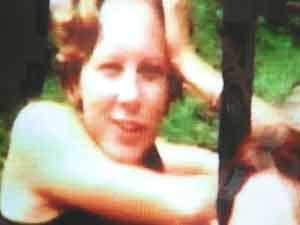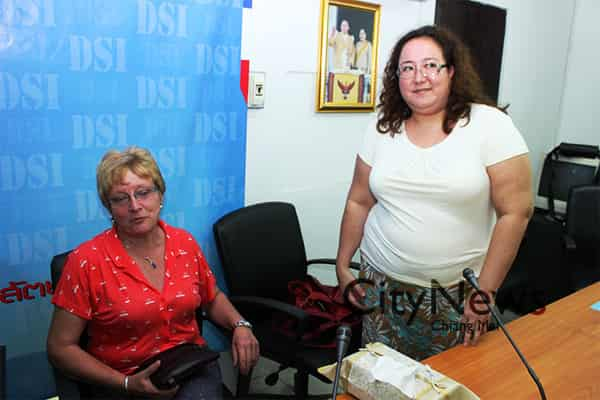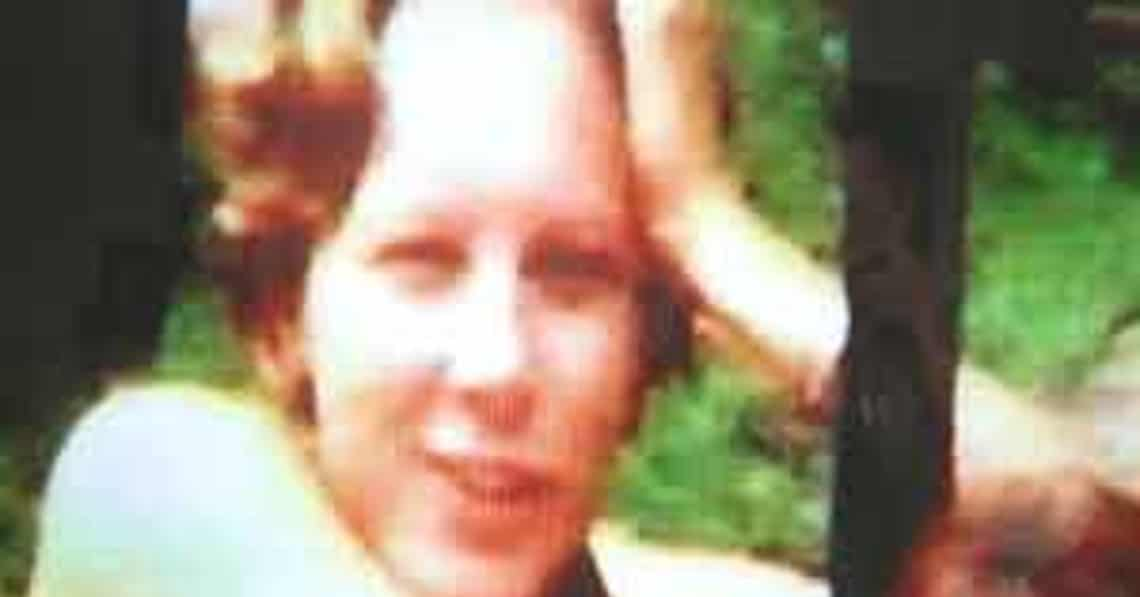One hears about media circuses, but until you are actually in one, a part of one, you can’t possibly comprehend the cutthroat mayhem of disinformation, gossip, hype and caffeine- and adrenalin-charged energy which feeds it.

There were some seriously experienced journalists focusing on this case, Andrew Drummond, controversial, yet always tenacious, reporter to a number of British newspapers being the mainstay throughout the investigation. I almost – almost – felt sorry for the local police, who were obviously completely out of their depths in dealing with journalists who simply refused to take them at their words, shut up and print what they were told and show the respect the police had always enjoyed from the local press.
Anyone who has seen a Thai press conference on television will see the utter deference shown to officialdom by the media and the disdain and contempt with which they are condescendingly offered in return. While things have evolved, remember that this was Chiang Mai, 12 years ago – there was a status quo. The foreign media, however, didn’t quite follow this well-scripted dialogue and had the audacity to doubt, to prod, to reveal and, ultimately to humiliate the police force.
The Phra Singh municipal police station on Rachadamnoen Road was where most of the ‘action’ happened, but this case having attracted such international attention, was also closely supervised by the 5th Region Police Office, which oversees the provinces in the north of Thailand, led by a dour-faced General Aram Chanpen who seemed to have taken personal umbrage at the refusal of this case to simply go away and who, over the coming months, become my nemesis. From day one there were the excitable police officers vying for sound bites; this was the time when they cockily talked of closing the case within days, when they flung out suspects’ names without thought to any personal damage, when Kirsty’s – completely speculated – sexual habits were crudely discussed in an attempt to pass some of the blame onto the victim (and which led Colonel Prasit Tamdi and his massive mole to be transferred to Isaan), and when they were seduced by the media into revealing all manner of evidentiary secrets one would think that police would keep to themselves.
I too was excitable. I was 27 years old at the time, only a few years older than Kirsty and my backpacking days were not that far behind me – trust me, there were condoms in my travelling kit too. I had hung out at Aree Guesthouse, I had smoked pot with Surin Chanpranet, I had met Andy Gill at the UN Irish Pub a few times and he told me that he was a regular reader of my magazine (The Chiang Mai Newsletter, now, Citylife), I was at the scene of the crime from the first day and since this was my first – and was to be my last – investigative job, even though I was a mere fixer/translator, I related very deeply to her and felt it a personal mission to help find her killer. As frustrating as it is, I still do. Speaking both English and Thai, being a local girl while at the same time working for, and feeling smugly secure with, the BBC and Andrew Drummond as my employers, I was the go-to girl for just about every reporter, Thai and western. The international press used me for translations with the police as well as with the local press, pushing me to ferret out gossip, news, and quotable quotes, the BBC magnanimously lending me out to a few friendly reporters once done with me. The local press, knowing that when this was all over, the status quo would return to its uneven keel, used me and the international media to put more pressure on the police than they would have normally dared, gossiping in glee about police discomfort when facing such media scrutiny, and the police, confounded by the lack of deference by the international press, tried to reason with me, feeding me bits of information in the hopes of keeping everyone happy. It was a giddy time.
And everybody was talking. And turning against each other.
The maid who claimed to have discovered the body at 4 p.m. changed her story to say that she had in fact discovered the body at 10.30 a.m. and that Surin Chanpranet and Andy Gill told her to shut up while they dealt with some issues; in Gill’s case his two day disappearance to sort out his visa (he had over stayed by two years) and in Surin’s supposedly to get rid of drug evidence…though considering the police found amphetamines in his own room along with a postcard of a naked western lady in bondage, he didn’t do a very good job of cleaning up anything. Stephen Triggs, who heard Kirsty’s scream at someone to leave her alone and get out of her room around 1 a.m., also pointed his finger at Gill and Surin, saying it was them who told everyone to go back to bed and to mind their own business. Surin then pointed a finger at Gill, saying that he had once got drunk and beat up a female guest. Suspicions and accusations took hold and everyone had a story to tell. I must admit that had I not been guided and led by such experienced journalists, I would have believed just about every story told, in spite of everyone changing tunes every few days.
All the while the police were desperately trying to pin the murder on a foreigner, not wanting Thailand to lose face. However, science was having none of it. Within ten days of the murder, Andrew Drummond and I went to visit Dr. Dr. Tanin Bhoopat Professor and Chairman of the Department of Forensic Medicine, Chiang Mai University. (The BBC and most of the world press left after ten days or so after the murder, their attention transferred to some other breaking story around the world. However, foreign reporters in Thailand as well as national and local press were still keeping the spotlight on the case. If I recall correctly, I was hired on by Drummond as his Girl Friday as he continued to report to The Guardian, The Times and The Independent and The Bangkok Post, among other publications.)

We walked into the morgue, my stomach somersaulting in a most acrobatic manner at the sight of bodies on the gurneys. Thankfully the good doctor took us to his office where he showed us the DNA results. He had been under great pressure by the police, he told us, to produce DNA which would point towards a western perpetrator, but, shaking his head, he told us that that was impossible. The DNA was undoubtedly Asian. He had told the police this two days prior to our interview and the media had gone crazy. At that point, nearly half a dozen foreign men had been jailed at one time or another, suddenly the police had to start their investigation virtually from scratch, and without much of their faces remaining.
However, some members of the police were not going to allow simple science to get in the way of their theories and one of the most charismatic policemen at the time was more than happy to share his theory with us all. Colonel Suthep Dejraksa was in his early forties, energetic, charming, outspoken, confident and quite adept at dealing with the press. He soon became our main contact for the case. He didn’t speak a word of English, but enjoyed allowing me to translate his interviews for him, often speaking for hours at a time on a multitude of topics, often after hours at a karaoke-styled garden bar over a bottle of Johnny Walker. After hearing about the Asian DNA he opined that he had heard that on the night of the murder a foreign man had paid some tuk tuk drivers for their sperm, which he then must have planted on Kirsty’s body.

There is absolutely nothing funny about the murder of Kirsty Jones, but the sad truth is that there was a tremendous amount of absurdity in its aftermath. Newspapers went crazy with stories of masturbating tuk tuk drivers lining the city streets furiously selling their sperm to faceless farang murderers…a lot of copy was sold.
It seemed that just about every few days this case spewed out another absurdity. But nothing was to be as outrageous as what would happen next.
